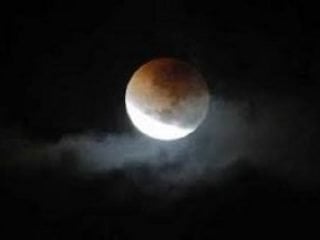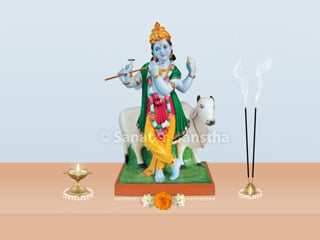1. Who can be called a Hindu?
A. The one who accepts the Vedas, Vedangs (Six sciences related to the Vedas) and the Purans and their corresponding sects and who is born in a traditional Hindu family is a Hindu.
B. The one who wholeheartedly accepts the definition above as the authority is also called a diksha-hindu, meaning ‘Hindu by initiation’.
C. One who does not believe in the Vedas, Vedangs and the Purans and their corresponding sects, but who is born to Hindu parents is a ‘Janamartha’, (a Hindu by birth). Vedas, Vedangs and the Purans as well as their corresponding sects are undoubtedly superior; but in their absence, I consider a Hindu by initiation to be superior from the point of view of worship. However, in matters of marriage, always a Hindu by birth should be chosen. – Shri Gulabrao Maharaj Virachit PrashnottaratmakSuktiratnavali – Ashtamayashti
2. Political Hindus
Some Hindus have made tremendous sacrifices for the cause of a Hindu Nation and all Hindus have the highest respect for their sacrifice. But they have strong hatred for those non-Hindus who committed atrocities on Hindus in the past. This, however, is not the symbol of a true Hindu. I consider them as ‘political Hindus’. Even though they were all-rounders and scholars of name, due to lack of a balanced spiritual practice, they lacked knowledge as far as knowing the secret of Dharma was concerned. This can be pointed as the only reason for the hatred they raised. These people may not be reborn as humans immediately after their death, but as and when they will be born as humans; their birth will be solely for rendering service unto Hindu Dharma. Such is not the case with Golwalkar Guruji, Shivaji Maharaj and the likes. If their spiritual practice for God-realization remains incomplete, they are reborn immediately as human beings and it gets completed in that birth, for the service towards the establishment of a Hindu Nation rendered by them is part of the spiritual practice done with the intention of seeking God. – H.H. Kane Maharaj, Narayangaon, District Pune, Maharashtra
3. Theist and atheist
There must be some regulatory authority behind the entire functioning of the universe. Whosoever it is, it is God. He is the Creator, Sustainer and Destroyer of the universe and His special attribute is Chaitanya (Divine consciousness) or spiritual knowledge. According to Hindu Dharma, the one who reposes faith in the existence of God and evidence of the Vedas is called a theist, and the one who does not, is an atheist. Vedantis (Believers of Vedas) have faith that God is eternal and so are the Vedas. However, only those who have faith in Vedas and practise accordingly, are given the title of Vedantis. The phrase ‘नास्तिको वेदनिन्दकः ।’ means a critic of the Vedas is a non-believer. Vedantis honour Vedas more than they worship God. Vedas are revealed directly by God. So, instead of believing in the truthfulness of Vedas, should one believe in the existence of God, it will, in turn, only establish the Vedas, and for this very reason, the Vedantis believe in the existence of God. For common people, God is inferential. Obviously, their belief is ordinary and not firm. This is comparable to the fact that, by seeing smoke, one can only ordinarily infer the existence of fire, not specifically. Vedas establish the Supreme God firmly. Such firm establishment is itself a spiritual experience. – H.H. Kane Maharaj, Narayangaon, District Pune, Maharashtra.
Difference between theist and atheist
| Theist | Atheist | |
|---|---|---|
| 1. Vedas looked upon as the final authority | A quote from a Holy text which describes the various qualities one should have, translates as follows : One who respects and believes in ancient recognised Scriptures is said to be a believer and this is the Ninth (Note) quality which one should possess. | Rejected |
| 2. God | God exists and the universe is His family | No |
| 3. Controller of the universe | Yes | No |
| 4. Organization | Exists. This world is an organized place. All things that exist in the world are preordained/organized. There is a reason for everything. Nothing is created without a reason. Just as the seed has all the attributes of a tree, similarly the attributes of the world are present in an invisible form in the Supreme God. The new Era uses the principle of progress through technology | Absent. Here, anarchy prevails |
| 5. Truth | Exists | There is no truth and nothing is false either |
| 6. Time | It is cyclical. The world moves through the phases of Creation, Sustenance and Dissolution and the cycle keeps repeating | Time is linear, incidences from the past do not get repeated |
Note – Self-control, self-restraint, penance, purity, forgiveness, imploration, knowledge, science and belief in God are the nine attributes.
4. Chaitanyadharma
Hinduttva is a doctrine of Chaitanya. Chaitanya sustains the Creation and hence, Hindu Dharma is also known as ‘Chaitanyadharma’.
5. Ishwari Dharma
Since Dharma is created by Ishwar (Supreme God), it is also called ‘Ishwari Dharma’.
6. Manav Dharma
Manav (Humans) are Sanatan, meaning ancient. Hence, Dharma is also called Manav Dharma. Though, thus said, not just human beings but the entire creation is given consideration in this definition.
7. Vishwadharma
Saint Dnyaneshwar has addressed Dharma as ‘Vishwadharma’, for human birth is for the realisation of the universe pervading God.- H.H. Kane Maharaj, Narayangaon, District Pune, Maharashtra

 Maghi Shri Ganesh Jayanti 2024
Maghi Shri Ganesh Jayanti 2024 Partial lunar eclipse of October 2023 – Do’s and Don’ts
Partial lunar eclipse of October 2023 – Do’s and Don’ts Main places of pilgrimage of Deity Datta
Main places of pilgrimage of Deity Datta Photographic Divine vision of some places which have experienced Shrikrishna’s blissful presence !
Photographic Divine vision of some places which have experienced Shrikrishna’s blissful presence ! Jananashanti ritual for baby born in an inauspicious period
Jananashanti ritual for baby born in an inauspicious period Mangaldosh – concept and misconceptions
Mangaldosh – concept and misconceptions